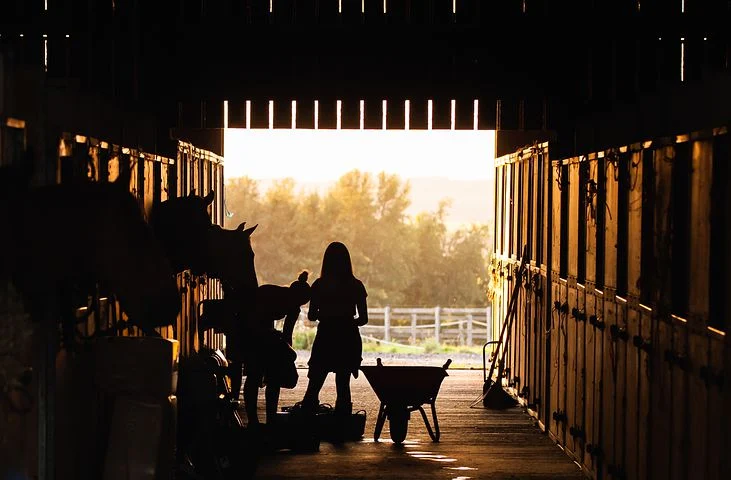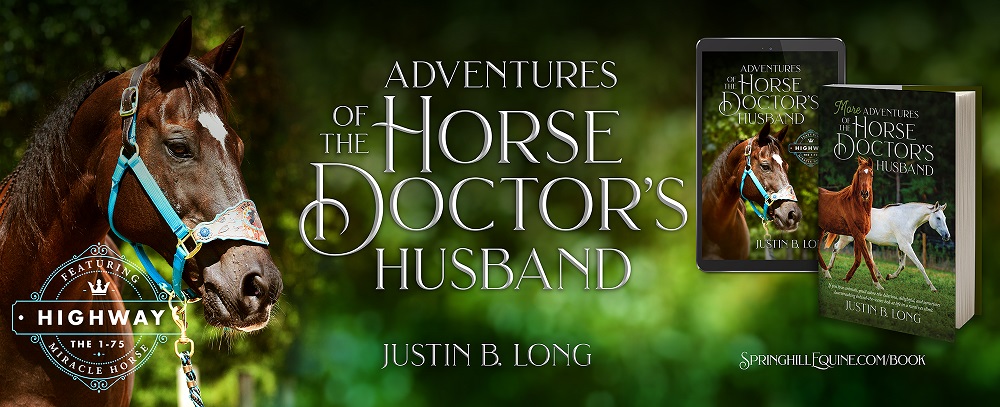Tuesdays with Tony
Whether you are a first-time horse owner, getting back into horses after some time away, or just want to make sure you’re not missing anything important in your horse care, it’s important to understand the preventative healthcare your horse needs every year. So listen up, horse people, and get ready to make sure you are checking all these boxes, because this is the stuff that’s necessary for every single horse out there to stay healthy. There are few things worse than a sick horse and an expensive bill that could have been avoided. If you’re missing out on any of these critical healthcare needs, give my doc a call…the time is Meow!
Vaccines
My docs break vaccines down into two major categories – “core” vaccines and “risk-based” vaccines. The core vaccines are the ones that all horses need, regardless of what they do for a living. There are 4 reasons a disease makes this list: 1) the disease is severe or deadly; 2) it’s difficult or impossible to treat; 3) every horse can be exposed to it, even if he never leaves home; 4) the vaccine is safe and effective. In Florida, those diseases are Eastern/Western encephalitis, West Nile Virus, Tetanus, and Rabies. The rabies vaccine is once a year and the EWT-West Nile vaccine is every 6 months in our region. (Don’t thank me, thank the mosquitoes that never disappear.) Don’t be lax on the timing, my docs have seen horses get encephalitis when they are only a couple months overdue for their vaccine. The risk-based vaccines (for example, influenza and strangles) are optional and are recommended if your horse will be exposed to those diseases. Best way to figure that out is to talk to my doc about your individual situation. For more info on core vaccines and why some common misconceptions don’t hold water, see my recent blog https://springhillequine.com/vaccines/
Deworming
Horses pick up internal parasites, aka “worms” through grazing in the pasture, mare’s milk, flying insects, and contact with manure. They need to be dewormed on a routine basis to avoid the worm level rising high enough to cause weight loss, diarrhea, colic, or even death. Years ago, the way we did this was to grab a different brand of dewormer from the store every 6 weeks and give it to our horse. It was called rotational deworming and it was a terrible idea! Why? We caused the worms to become resistant to the dewormers so nowadays many of them don’t work anymore. Here’s how my docs recommend deworming most adult horses: A fecal egg count, a simple and inexpensive lab test, is performed in the spring and the horse is only dewormed if there is a high level of parasite eggs. Then once a year, horses are dewormed with a product containing either ivermectin or moxidectin and also praziquantel. The praziquantel works against tapeworms, which don’t show up well on the fecal egg count. Examples of these products are Equimax, Zimectrin gold, and Quest plus. The majority of horses only need to dewormed once a year and my docs usually do it in the autumn. Foals and young horses are on a different schedule and require different products, so talk to my doc to make a plan.
Dentistry
Horses have a different kind of teeth than you humans and we cats have. Once we get our adult teeth, we basically have the same teeth in our mouths throughout our adult lives. On the other hand, a horse’s teeth are constantly erupting, or pushing out from his jaw into his mouth, throughout most of his life. As he chews, the portion of the tooth inside his mouth is being ground down. As a result, sharp points or hooks on the teeth, uneven teeth, and mouth ulcers often result from this wear and tear. Every horse needs a dental exam at least once a year. A complete dental exam requires a dental speculum to gently open the horse’s mouth, sedation to allow him to relax his jaw, a bright light to check all the way in the back of the mouth, and a veterinarian to perform the exam, since it’s a medical procedure. There is a big difference between a dental exam performed by my doc, and a “float” by a lay dentist. If you want to learn more about this read my blog https://springhillequine.com/we-are-professional-grade/ My docs will correct sharp, uneven, or overgrown teeth and check for infections or fractured teeth. Don’t wait until your horse is showing signs of major problems like dropping feed, losing weight, having problems chewing, or fighting the bit when ridden! You want to prevent these issues before they happen. A yearly dental exam can extend your horse’s lifespan and keep him in good weight into his senior years.
Coggins test
A Coggins test is a blood test to check for the Equine Infectious Anemia virus. EIA is a very serious disease, causing fever, decreased appetite, anemia, swelling, death. There is unfortunately no treatment or cure, so it is very important that EIA is not spread to other horses. A negative Coggins test is necessary for interstate travel, bringing your horse to an equine facility or showground, and getting a health certificate from your vet. Even if you don’t plan to travel often, you should make sure your Coggins is up to date in case you have to move barns or evacuate your horse from a natural disaster. A Coggins test result is provided to you as a paper or electronic certificate, and it usually expires in 1 year.
Hoof care
Find a great farrier and get on a regular schedule for trims! Your horse’s hooves should be trimmed every 4-6 weeks. Letting them grow too long between trims is very detrimental to the health of his feet and legs and can cause serious lameness problems. Hoof hygiene is also important to prevent hoof diseases. Keep his feet picked out regularly and keep his environment clean. Stalls and paddocks should be kept picked out, so his feet aren’t constantly exposed to urine and manure that degrade hoof tissue. If the weather is wet and his field is muddy, provide a way for the feet to dry for at least part of each day. Know how to recognize thrush, white line disease, hoof cracks, and other common hoof disorders. Remember the saying “No hoof, no horse”!
Be prepared for problems
If you’re new to horses, you’ll soon learn that they are accident prone creatures. Of course, you’ll do your best with your horse’s feed and housing to avoid issues, but sooner or later, you’ll need a vet for an emergency visit. Build a relationship with your vet ahead of time, don’t wait until a serious problem happens to look for a vet to come out! The best time to establish that relationship is during routine preventative healthcare, not during an emergency. Not all vet clinics take emergencies if you are not a current client, so the best way to ensure you will have help when you need it is to establish a client relationship ahead of time. Call your vet early if there is a problem. Attempting to wait it out or treat it yourself often makes the problem more difficult and expensive to treat later on. Ask your vet lots of questions! My docs love to help horse owners learn how to take the best possible care of their horses. Prepare a first aid kit and learn to take your horse’s vital signs. Don’t worry, I’ve covered both of those topics in my previous blogs.
If that all seems a bit overwhelming, don’t worry. Horses do require a few necessities to stay healthy, but my docs are always there to guide you through. They have Wellness Plans designed to cover all your horse’s required healthcare for the year, at a discounted price. My Springhill office humans can even take care of remembering when your horse is due for his next visit. And don’t fur-get about my blogs – they’ll have you feline informed about most any horse care topic you can imagine!
Until next week,
Tony
Tuesdays with Tony is the official blog of Tony the Clinic Cat at Springhill Equine Veterinary Clinic in Newberry, Florida. If you liked this blog, please subscribe below, and share it with your friends on social media! For more information, please call us at (352) 472-1620, visit our website at SpringhillEquine.com, or follow us on Facebook!
[jetpack_subscription_form title="Subscribe to Whinny's Wisdoms"]


